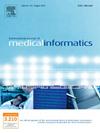使用FHIR进行数据共享:对医疗保健环境中的挑战和促进因素的范围审查
IF 4.1
2区 医学
Q2 COMPUTER SCIENCE, INFORMATION SYSTEMS
International Journal of Medical Informatics
Pub Date : 2025-10-04
DOI:10.1016/j.ijmedinf.2025.106128
引用次数: 0
摘要
背景与目的数字化数据的共享与集成是优化医疗保健临床决策质量的关键。快速医疗互操作性资源(FHIR)是医疗领域一个相对较新的标准,在增强医疗信息系统的互操作性方面发挥着关键作用。然而,在医疗保健环境中使用FHIR面临一些挑战,阻碍了其最佳利用。确定挑战和促进因素对于加强其使用至关重要,并有助于卫生信息系统之间更有效的互操作性。因此,本综述旨在利用现有文献识别这些因素,以便更好地理解医疗保健环境中的这一主题。材料和方法本范围评价采用系统评价和荟萃分析扩展范围评价首选报告项目(PRISMA-ScR)清单进行。检索Web of Science (WoS)、PubMed、Scopus和b谷歌Scholar四个数据库,检索时间截止至2025年4月15日,不受时间限制。使用定性内容分析获得挑战和促进因素的数据。结果采用描述性统计、表格和叙述性综合来呈现。结果通过检索数据库、应用入选标准和人工检索,筛选出8篇文献进行数据提取和分析。确定了与在医疗保健中使用FHIR相关的73项挑战和43个促进因素。这些挑战分为组织、技术、个人、数据管理以及法律、道德和监管。促进因素被分为四类:组织因素、法律法规因素、数据管理因素和技术因素。结论:本综述强调了影响在医疗保健环境中采用FHIR的挑战和促进因素。管理人员、政策制定者、医疗保健信息系统的设计者和其他利益相关者可以考虑这些因素,以建立指导方针或路线图,以解决关键障碍,如技术和组织挑战,以提高在医疗保健环境中不同HISs之间采用FHIR进行数据共享的机会。本文章由计算机程序翻译,如有差异,请以英文原文为准。
Using FHIR for data sharing: A scoping review of challenges and facilitators in healthcare settings
Background and aim
The sharing and integration of digital data are essential for optimizing the quality of clinical decision-making in healthcare. Fast Healthcare Interoperability Resources (FHIR) is a relatively novel standard in healthcare, playing a key role in enhancing the interoperability of healthcare information systems. However, using FHIR faces some challenges in the healthcare environment, hindering its optimal utilization. Identifying challenges and facilitators is crucial in enhancing its use and contributes to more efficient interoperability between health information systems (HISs). Therefore, this scoping review aims to identify these factors using the existing literature to provide a better understanding of this subject in healthcare settings.
Materials and methods
This scoping review was conducted using the Preferred Reporting Items for Systematic reviews and Meta-Analyses Extension for Scoping Reviews (PRISMA-ScR) checklist. Four databases of the Web of Science (WoS), PubMed, Scopus, and Google Scholar were searched until 15 Apr 2025, without any time limitation, to retrieve relevant articles on this topic. The data on challenges and facilitators were obtained using qualitative content analysis. The results were presented using descriptive statistics, tables, and narrative synthesis.
Results
After searching the databases, applying the eligibility criteria, and conducting manual searches, eight articles were selected for data extraction and analysis. Seventy-three challenges and 43 facilitators related to the use of FHIR in healthcare were identified. The challenges were classified into organizational, technical, individual, data management, and legal, ethical, and regulatory. The facilitators were categorized into four categories: organizational, legal and regulatory, data management, and technical factors.
Conclusion
This scoping review highlights the challenges and facilitators that influence the adoption of FHIR in healthcare environments. Managers, policy-makers, designers of healthcare information systems, and other stakeholders can consider these factors to establish a guideline or roadmap to address critical barriers, such as technical and organizational challenges, to enhance the chance of FHIR adoption for data sharing between different HISs in healthcare settings.
求助全文
通过发布文献求助,成功后即可免费获取论文全文。
去求助
来源期刊

International Journal of Medical Informatics
医学-计算机:信息系统
CiteScore
8.90
自引率
4.10%
发文量
217
审稿时长
42 days
期刊介绍:
International Journal of Medical Informatics provides an international medium for dissemination of original results and interpretative reviews concerning the field of medical informatics. The Journal emphasizes the evaluation of systems in healthcare settings.
The scope of journal covers:
Information systems, including national or international registration systems, hospital information systems, departmental and/or physician''s office systems, document handling systems, electronic medical record systems, standardization, systems integration etc.;
Computer-aided medical decision support systems using heuristic, algorithmic and/or statistical methods as exemplified in decision theory, protocol development, artificial intelligence, etc.
Educational computer based programs pertaining to medical informatics or medicine in general;
Organizational, economic, social, clinical impact, ethical and cost-benefit aspects of IT applications in health care.
 求助内容:
求助内容: 应助结果提醒方式:
应助结果提醒方式:


